|
Spiriverpa lunulata? → Pandivirilia melaleuca
|
|
| christoophe |
Posted on 10-11-2022 09:03
|
|
Member Location: Posts: 1948 Joined: 06.02.08 |
Collected in the Alps, at the edge of a stream without the presence of sand.
Edited by christoophe on 19-11-2022 13:50 |
|
|
|
| christoophe |
Posted on 10-11-2022 09:03
|
|
Member Location: Posts: 1948 Joined: 06.02.08 |
2 |
|
|
|
| Zeegers |
Posted on 11-11-2022 08:46
|
|
Member Location: Posts: 18446 Joined: 21.07.04 |
Did you check the genitalia ? These white Therevidae are quite similar from exterior. Theo |
|
|
|
| christoophe |
Posted on 19-11-2022 11:30
|
|
Member Location: Posts: 1948 Joined: 06.02.08 |
Thank you Theo for your help. This is the male Pandivirilia melaleuca. |
|
|
|
| jonas |
Posted on 22-11-2022 10:42
|
|
Member Location: Posts: 351 Joined: 06.05.07 |
christoophe wrote: Thank you Theo for your help. This is the male Pandivirilia melaleuca. Which I identified for you  thanks for the acknowledgement thanks for the acknowledgement  I hereby copy my email to you, for other users this is most certainly interesting. These are beautiful species for sure. I have to admit, I don't recognize it as Spiriverpa lunulata but that's difficult to assess on the pictures alone. There are some characteristics, which are slightly wrong for Spiriverpa (lunulata): 1. The halter knob is not dark enough for Spiriverpa (indicates Pandivirilia or Acrosathe). 2. the face and frons are not hairy (the length of the hairs should be equivalent to the length of the hairs on the scutum) - this indicates Pandivirilia or Acrosathe. This is a very strong character, so it's especially this one you need to check. 3. the posterior cell is open (which is good for Spiriverpa) - this indicates Pandivirilia (nearly always closed in Acrosathe) As pictures are sometimes a bit difficult, be sure to check them. 4. uniserial row of AV on F3; and two clear DV Anyhow; the point is, i think it's Pandivirilia melaleuca - which is an amazing species of which not many male specimens are known. The terminalia are fuzzy on the pictures, but seem to be a match. You will need to check one character: is the frons devoid of any setulation (-> is it entirely bare? or are there two small patches with hairs?) But, feel free to check the features against the material you have in collection. Always better to see material of Therevidae in hand  I have attached a PDF with the terminalia of Spiriverpa lunulata (you can examine externally) (and a generic revision). I have attached a PDF with the terminalia of Spiriverpa lunulata (you can examine externally) (and a generic revision). |
|
|
|
| christoophe |
Posted on 22-11-2022 13:14
|
|
Member Location: Posts: 1948 Joined: 06.02.08 |
Yes Jonas it's you  , I confirmed it by email. I zapped the criterion of hairiness on the forehead and therefore landed elsewhere. In this station I also collected a female P. melaleuca, easier to determine. , I confirmed it by email. I zapped the criterion of hairiness on the forehead and therefore landed elsewhere. In this station I also collected a female P. melaleuca, easier to determine.Thank you jonas  |
|
|
|
| Jump to Forum: |


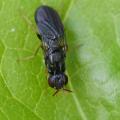



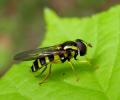
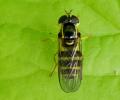

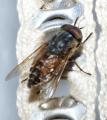
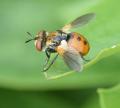


 but don't see the image in the post.
but don't see the image in the post.